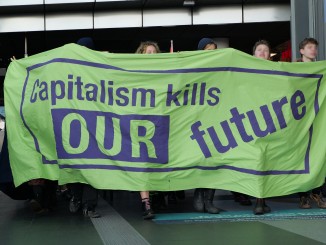
In June 2025, Johns Hopkins Hospital allowed 5,000 gallons of diesel fuel to spill from two underground tanks into Baltimore’s storm drains and, from there, into the harbor. The spill covered wildlife like turtles and birds, and the water itself in red-dyed fuel. At first, Hopkins claimed the spill was only 200 gallons. That number was quietly revised to 2,000, and finally to 5,000. Hopkins has refused to explain how this happened and why fail-safes did not work.
This situation reflects a pattern of silence and negligence from one of Baltimore’s most powerful institutions. The spill joins a long list of ways Hopkins has polluted the city. For years, its heating and cooling systems have released copper and chlorine into the storm drains at levels far above federal limits. Those pollutants, like the diesel fuel, end up in the harbor. There has been no accountability. No explanation from Hopkins. No serious action from state regulators.
It’s especially striking that this comes from an institution known worldwide as a leader in public health. Hopkins’s Bloomberg School of Public Health trains experts in protecting communities, yet the city that hosts it suffers from its carelessness. This contradiction exposes the true priorities of Hopkins: prestige and power come before the health and well-being of the people of Baltimore.
The diesel spill also fits into a much longer history. Hopkins has grown wealthy and powerful while displacing Black and working-class residents through expansion and gentrification. It has pushed for a private police force to protect its property, while the surrounding communities deal with underfunded public services.
Hopkins will pay for cleanup, but that is the bare minimum. This is about more than spilled diesel. It’s about an institution that operates without accountability, protected by its wealth and influence. Baltimore’s working class cannot count on Hopkins or the state to protect their health or environment. We have to look out for our own interests.




